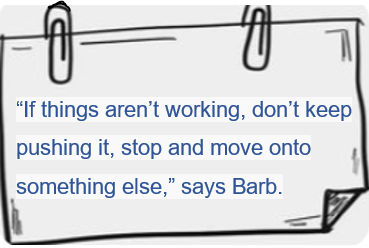Parent Checklist: How to support student learning at home

As schools clamber to prepare for remote learning, many parents are fearful that there will be gaps in their children’s education. Try not to let this disruption cause stress in your household. We have asked teachers for some tips and also parents who are pros at home schooling. Here are some simple strategies for coping with this change, to make sure that learning continues effectively.
1) Routine is essential
Set up a regular place for your children to work and a set time in which they will complete activities. This will take away the stress of telling your children when to start. Aim to keep to their school timetable and include breaks. If you can set the habit, your kids will form the correct mindset to complete school work.
“Children need normality, familiarity and structure. So keep to a routine. It makes home schooling easier and helps children to realise this is not a holiday, and that teachers are expecting learning to take place to some degree.” L Rosenblatt, experienced teacher
2) Break it down into smaller bits
Certain learning tasks can seem daunting. From writing projects to spelling lists to major research assignments, the idea of where to start can be discouraging for many kids. To avoid becoming overwhelmed, break the task down into smaller sections to be ticked off each day. If you aim to do this, the tasks become more manageable and less likely to cause worry for your child.
3) Organisation
The night before lessons commence, ensure that the workspace is ready: necessary equipment, paper, laptops charged and all potential distractions removed. The health benefits of a nutritious breakfast are really important and make sure they drink plenty of water. Eating breakfast has been linked with improved English and maths skills in children!
4) Take a breather
Research reflects that people (including children!) have difficulty concentrating for periods longer than 45 minutes at a time. Either set the oven timer to make sure your children have a short break to step away from their work briefly, then return to the task refreshed.
Teacher Emily Profitt advises parents, “Making learning fun is vital – so baking, painting and getting out and about in the garden are essential to reduce boredom.”
5) Don’t be afraid to ask for help or guidance
Remember that you are not a trained teacher or tutor. Your child’s classroom teacher/s should still be accessible at this time. They are a valuable resource, so reach out if you need. Be conscious that other parents may be also seeking support, so you may not receive an instant response. Tip: Try to compile a list of questions during the day and only check in with the teacher at the end. We’re here to help parents too, so send us an email if you’re stuck on a literacy problem!
Contact us info@literacyforboys.com.au
Some interesting advice from mums who home school:
Home education was increasing in Australia before COVID-19, so there is plenty of wisdom and knowledge for first-timers to draw on. Let’s look at two examples from mums who live in remote areas….
Barb McKimmie lives in the remote Kimberley region in Western Australia. She says that the biggest

A great quote from an experienced mum
hurdle was not having a break from each other, but apart from that, it can be a satisfying experience. Barb has learnt many tricks to overcome difficulties.
To help keep things fresh, Ms McKimmie and her family have a little tin full of ideas for “Brain Breaks”. These include things like 10-star jumps, run around the house, choose a song to dance to, keep a balloon in the air.
“All activities need to have a clear ending or time limit so they come back quickly.”
Kasie Scott is a mother of six and lives in outback Queensland. She said people should not be worried about being thrown into home tutoring.
“Organisation is the key for me. Establish a routine that works for your family and stick to it,” says Kasie.
One of Kasie’s top tips is to take schoolwork outside, or at least somewhere else in the house, just to mix things up. Other ideas include: writing with chalk on concrete, use the kitchen for counting or measuring and taking the kids outside to spell words out to each bounce of the ball.
Kasie admits that “it’s definitely not all roses and beans, some days are hard”. She suggests reaching out to others is an important coping strategy so communicate with your school, other parents and Facebook groups.
“Don’t give up, even if you’ve had a bad day, shut the door, start fresh again tomorrow. We’ve had many, many of them.”
Check out our blogs for more ideas and tips.
How LFB is gaining real results in improving literacy
Boys Love LFB – Here’s what they have to say!
Get boys reading in the digital age
Why write? Tips for reluctant writers
Brought to you by Tanya Grambower
